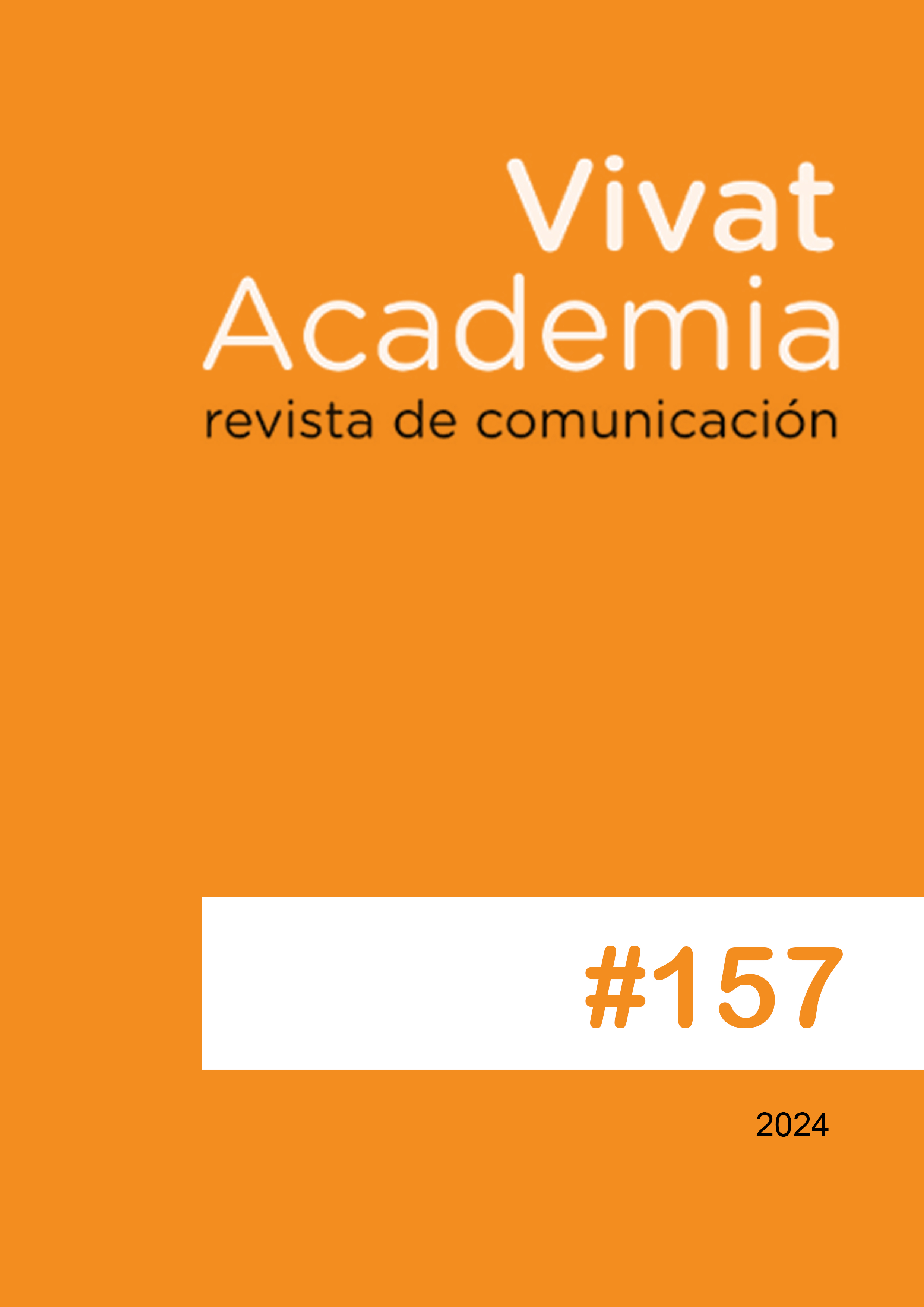FEMALE OF POSITIONS, PROFESSIONS AND LABOR ACTIVITIES ACCORDING TO THE PERCEPTION OF THE POPULATION AND THE ROYAL SPANISH ACADEMY
Main Article Content
Abstract
Introduction: There is a slow advancement in the nominations of positions, professions, and labor activities from a gender perspective by the Royal Spanish Academy (RAE), which is also not in line with the language spoken by the majority of the population and is inverse to the use and application of some expressions. Methodology: The purpose of this research was to develop a systematic study of the use of words with a feminine marker related to the exercise of a position, profession, or labor activity, proposed in the Dictionary of the Spanish Language (DLE) in its twenty-third edition of 2014 to contrast the normative position of the RAE with its real and daily use. A quantitative approach, non-experimental cross-sectional design, comparative descriptive, and non-probabilistic sample of 465 students and teachers from higher education institutions of four political regions of Peru were used. Results and Discussions: The results showed that, of the 24 positions studied with nominations recommended by the RAE, 42% (10) were not accepted by the teachers and students; likewise, it is evident that sexist biases still predominate in the use of words applied to men and women. Conclusions: It was concluded that the RAE is incorporating the nominations of positions, professions, and activities slowly and that the nominations proposed by the RAE are not in line with the use of the population.
Downloads
Article Details

This work is licensed under a Creative Commons Attribution-NonCommercial-ShareAlike 4.0 International License.
The main author must deliver the letter of transfer of copyright, according to the model provided by Vivat Academia, Revista de comunicación, which declares the transfer of copyright to the journal and make explicit the rights of authors regarding the dissemination and use of the manuscript once published.
Creative Commons Attribution/Non Commercial 4.0 International
Funding data
References
Alcaide-Aranda, L. I. del C. (2002). Estilos de Gestión según Género en el diseño del Proyecto Educativo Institucional en Institutos Superiores [Tesis inédita de Maestría, Pontificia Universidad Católica del Perú]. https://hdl.handle.net/20.500.12404/595
Alcaide-Aranda, L. I. del C. (2023). Male management and female management: pending reflections. Human Review. Revista Internacional de Humanidades, 16(6), 1-22. https://doi.org/10.37467/revhuman.v12.4695
Barrientos-Báez, A., Báez-García, A. J., Flores-Muñoz, F. y Gutiérrez-Barroso, J. (2018). Gender diversity, corporate governance, and firm behavior: The challenge of emotional management. European Research on Management and Business Economics, 24(3), 121-129. https://doi.org/10.1016/j.iedeen.2018.07.001
Barrientos-Báez, A. y Alonso-Luis, X. (2018). Empleo y contratación en España: diferencias de género. Turismo: Revista de estudios de Turismo de Canarias y Macaronesia, 7, 1-21. http://ijteg.iriarteuniversidad.es/admin/archivos/2018%20(1).pdf
Campos-Serna, J., Ronda-Pérez, E., Artazcoz, L., Moen, B. y Benavides, F. (2013). Gender inequalities in occupational health related to the unequal distribution of working and employment conditions: a systematic review. International Journal for Equity in Health, 12(1). https://doi.org/10.1186/1475-9276-12-57
Chetkovich, C. (2019). How non-binary gender definitions confound (already complex) thinking about gender and public policy. Journal of Public Affairs Education, 25(2), 226-252. https://doi.org/10.1080/15236803.2018.1565050
Chomsky, N. (1965). Aspects of the Theory of Syntax. Cambridge, MIT Press
Cuadrado, I. y Morales, J. (2007). Algunas claves sobre el techo de cristal en las organizaciones. Revista de Psicología del Trabajo y de las Organizaciones, 23(2), 183-202.
Guichard Bello, C. (2018). Manual de comunicación no sexista. Hacia un lenguaje incluyente. PROGRESO, S.A. de C.V.
Hernández-Sampieri, R. y Mendoza, C. (2018). Las rutas cuantitativa, cualitativa y mixta. Editorial Mc Graw Hill Education.
Lledó, E. (2006). Para visibilizar a las mujeres en la lengua. Revista Identidades, 3, 83-98. https://acortar.link/cao5VG
Lora, C. (1996). Identidad femenina y género desde una perspectiva psicológica. Narda Henríquez.
Marenghi, C. (2018). A propósito del lenguaje inclusivo. https://repositorio.uca.edu.ar/handle/123456789/9379
Marrades, A., Sevilla, J., Calero, M. L. y Salazar Benítez, O. (2019). El lenguaje jurídico con perspectiva de género. Algunas reflexiones para la reforma constitucional. Revista De Derecho Político, 1(105), 127-160. https://doi.org/10.5944/rdp.105.2019.25270
Martínez-Jiménez, R., Hernández-Ortiz, M. y Cabrera, A. I. (2020). Gender diversity influence on board effectiveness and business performance. Corporate Governance: The International Journal of Business in Society, 20, 307-323. https://international.vlex.com/vid/gender-diversity-influence-on-849592699
Moreno-Guerrero, A. J., Fernández, M. y Alonso, S. (2019). Influencia del género en la competencia digital docente. Revista Espacios, 40(41). https://www.revistaespacios.com/a19v40n41/19404130.html
Niklison, L. (2020). Lo que la RAE no nombra no existe: Una mirada glotopolítica sobre las respuestas de la RAE al lenguaje inclusivo/no sexista. Cuadernos de la ALFAL, 12(1), 13-32. https://acortar.link/WyWRc6
OED (Oxford English Dictionary). (2023). https://www.oed.com/information/information/updates
ONU. (2015). La Agenda 2030 y los Objetivos de Desarrollo Sostenible: una oportunidad para América Latina y el Caribe.
Pinzón, S. (2005). Nociones Lingüísticas Básicas - Lenguaje, lengua, habla, idioma y dialecto. Revista la Tadeo, 71. https://revistas.utadeo.edu.co/index.php/RLT/article/view/545
Real Academia Española de la Lengua. (2014). Diccionario de la Lengua Española. Espasa-Calpe S. A.
Rincón, V., González, M. y Barrero, K. (2017). Women and leadership: Gender barriers to senior management positions. Intangible Capital, 13(2), 319-386. https://www.intangiblecapital.org/index.php/ic/article/view/889
Saget, C. (2018). Resumen ejecutivo. World Employment and Social Outlook, 2. https://doi.org/10.1002/wow3.146
Sancha, J. (2022). Ideas en torno a una historia de femeninos invisibilizados en la opinión pública de los siglos XVIII y XIX. Lexis, 46(4), 59-102. https://doi.org/10.18800/lexis.202201.002
Shepherd, L. (2017). Gender, un peacebuilding, and the politics of space: Locating legitimacy. Oxford University Press.
Trombetta, M. y Cruz, J. C. (2020). Brecha salarial de género en la estructura productiva argentina. En Asociación Argentina de Economía Política.
Vázquez, Á. y Urbiola, A. (2014). El género como una perspectiva para el análisis de las organizaciones. Iztapalapa Revista de Ciencias Sociales y Humanidades, 77, 159-189. https://doi.org/10.28928/ri/772014/aot2/vazqueza/urbiolaa





